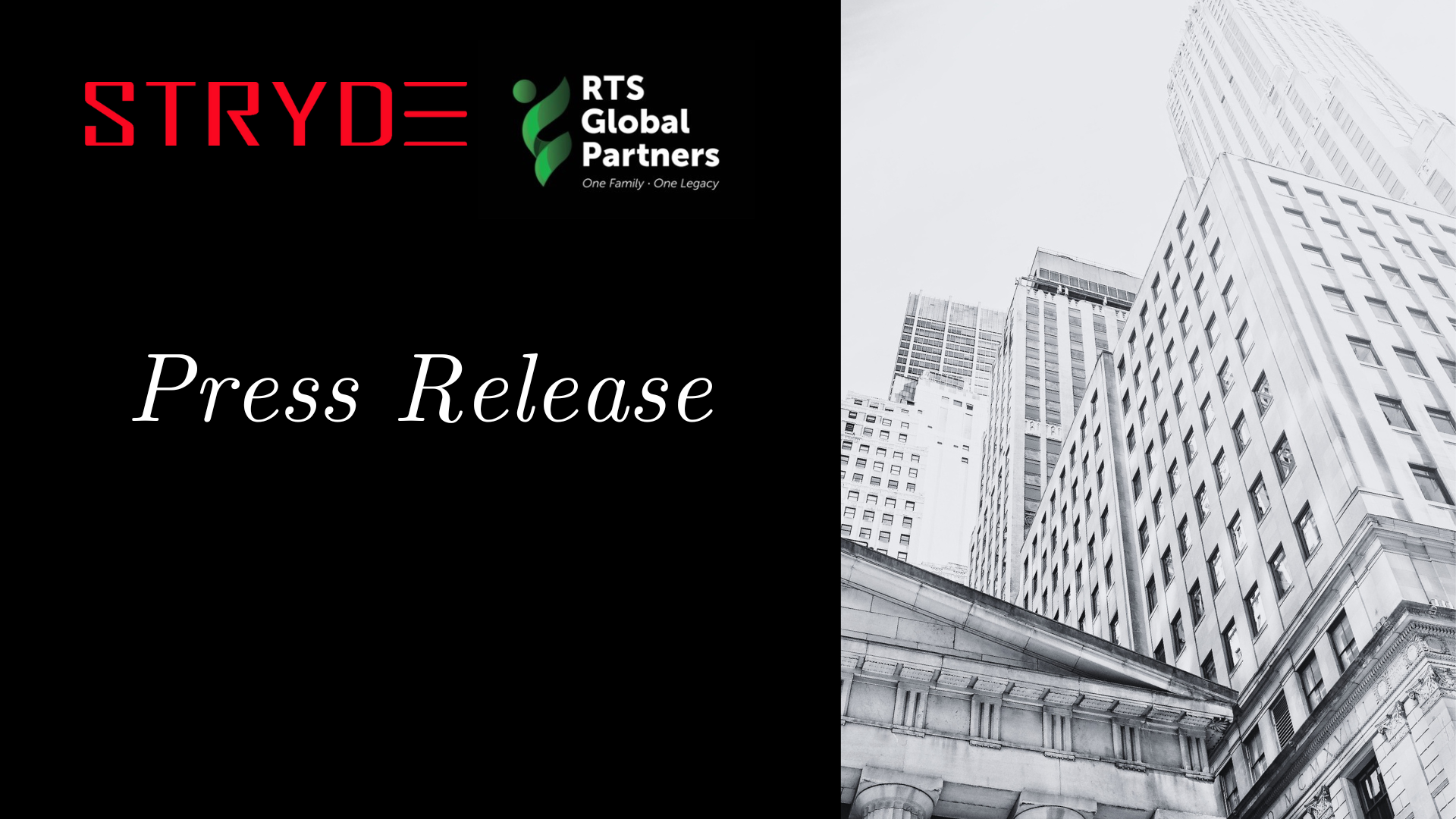
2023-01-16
9-minute read
Family Office…a growing, changing, dynamic sector that spans the globe. A fascinating world that includes old and new money held under the ‘stewardship’ of a family. While the sector has historic roots that trace back to ancient Rome, the modern form of the Family Office (FO) originated in the 1880s in the USA. In the last 10-15 years FOs have become an increasingly popular way for a family to manage their wealth. The benefits being financial control, proactive wealth preservation, solving/preventing family conflicts, better governance and most importantly ensuring the effective transition of wealth to future generations.
Even though the number of FOs is growing globally, they are not an obvious place for people to start or develop their career. This article looks at careers in FO, highlighting some of the key differences from the ‘corporate world’ and the opportunities that are unique to this sector.
Why write about this now?
The growth in family office
It is well documented that FOs are on the rise. A recent Mordor Intelligence study states the number of global Family Offices in Q2 2019 stood at 7300 – a 38% increase from the prior two years. North America having the largest share, with 3100 or 42% of the total. Asia Pacific had 1300 offices and Europe 2300. Other reports and professionals in the investment industry suggest a much higher number than 7300. The rise of FOs is also signaled by the increase of service providers, membership groups, hedge funds converting to FOs and specialist teams popping up within wealth management firms and banks. All spurred on by inter-generational wealth transfer and newly acquired wealth, primarily derived from technology entrepreneurs.
The evolution of the family office
As the family office market matures and becomes increasingly influential in the global business landscape, we see more job vacancies in this sector. While the newer FOs are creating the foundation for future wealth preservation, the more established offices are embracing technology, being proactive about cyber-security, professionalizing their investment committees/policies, retooling and developing their leadership, redefining roles and responsibilities to prepare for the next generation, and evolving how they reward their valuable executives.
Financial services shake up in 2023
We have seen technology companies make significant layoffs in 2022 and as CEOs of large banks unanimously warn of a mild to potentially severe recession in 2023, we expect to see a shake up across financial services in the coming months. This means, more people considering their options and contemplating their career. The competition for the best talent will continue – candidates are still particular about who, where and how they wish to work and most organizations know that the best and brightest people determine their success.
Roles in family office
Roles in FOs typically fall into two areas. The domestic side consists of employees that run and manage the personal side of a family’s life. That is everyone from executive assistant, housekeeper, security through to private jet and yacht crew. The second area being the investment side, which includes the team involved in investment and wealth management. Roles in the latter include CEO (often the principal), CIO, Chief of Staff, COO, CFO, Portfolio Manager, Legal Counsel through to Analyst, Bookkeeper at the more junior end.
The size of the team is obviously influenced by the Assets Under Management (AUM) and how much wealth is outsourced versus managed in-house. Additionally, the industries that a family directly invests in (alternatives, tech, healthcare, real estate etc.) and appetite for risk, will influence the style and nature of work.
While the majority of Single-Family Offices (SFOs) consist of about 5-8 people on the investment side, there are a minority of large, multi-generational families that employ 100s of people across their entire family, the foundation, the investment side and all of their assets.
Some families fund an investment company that operate as an off-shoot and they can employ 100s of people often across multiple offices and geographies and look more like a hedge fund from the outside – examples of this are Soros Fund Management and Rockefeller Capital Management. These firms can offer a clear, interesting career track for an investment professional. They often have their own sub-culture even though they are aligned to a FO.
The final area is the MFO/VFO, that is the Multi Family Office and Virtual Family Office. These organizations are investment funds backed by multiple families (VFO is digital/virtual version of the MFO) and have a strong focus on private markets. Roles in these firms are like an SFO with some additional emphasis on client advisory, reporting, and governance. As a result, MFOs tend to have larger teams in total.
Life at a family office
FOs and ultra-high-net-worth individuals (UHNWI) receive a mixed rap in the media. The trope being that the super-wealthy are high achievers but unreasonable, egotistical, and out of touch.
In our experience, these are characterizations and do not fairly describe the reality of working for a wealthy family. The feedback we have received from talking to 100s of C-suite level candidates, is that life at a FO is no more or less challenging than working at an equivalent level in a corporate company. There are some key differences though, we have highlighted both challenges and opportunities below:
Challenges
· Working with families can come with complex family dynamics and unpredictability. This can range from handling differing views on investment decisions or a family bereavement
· FOs tend to operate with a lean team, that means while your AUM might be $500million, you might be working in a small office and need to turn your hand to a range of tasks that sit outside the typical CIO role
· The principal is likely to oversee a range of projects, businesses and family assets, often in multiple countries, which is likely to mean a 24/7, 365 day a year way of working
· If a new generation of family members take up leadership roles, it can mean a change in investment strategy, a new emphasis on purpose and direction, which could result in changes to team members
Opportunities
· Once you establish trust with a principal and/or key family members, you can be given a high degree of autonomy and decision-making responsibility
· There is always complexity and challenge, whether it is from the investments you are involved with or the family dynamics that come up
· The opportunity to make an impact, not just on the wealth preservation side but also in terms of philanthropy and sustainability
· Rather than spread your skills and experience across multiple clients, there is the chance to get to know a family and their financial goals and vision in detail
· The opportunity to be objective about financial decisions, you are not there to sell a firm’s products, but rather provide value and find solutions that fit the family’s goals and that are best for them
· The chance to diversify an investment portfolio, e.g. diversify into new verticals outside of real estate and be involved in more direct investment deals
There are major upsides to working in family office. As alluded to above, an influencing factor on culture and role is where the family is on their journey from wealth creation to wealth preservation and/or growth. Larger, multi-generational families are likely to have more established systems of governance, investment committees in place and clarity about levels of risk or bias in their investments. Newly established FOs may need help putting all those things in place.
Skills and mindset
The skills and mindset of senior executives required by FOs include technical expertise in their field (tax, investments, legal) combined with emotional intelligence. These are both hard to find and in demand in the market.
One CFO we spoke to, highlighted the importance of inter-personal skills and the range of people he liaises with in his day-to-day work. He deals with tax advisors, lawyers, real estate managers, leaders of many operating businesses and due to the international nature of the FOs assets, he is working across multiple time zones each day and is responsible for the reporting of 150+ operating companies. While his formal title is CFO, he plays the role of COO, CIO and CEO also. His role is to connect specialists and help facilitate holistic decision making.
While corporate companies may have the advantage of well-established structures, FOs tend to have a shorter chain of command. As a senior professional in an FO, you will likely report directly into the primary decision maker.
We find that almost all individuals in senior positions in FOs have held careers in reputable investment banks, funds, asset management or wealth management or professional services. They have impressive backgrounds often with Ivy League educational backgrounds. Skills developed in these firms transfer well to family offices, and likewise, FOs are attracted to candidates that have best in class knowledge and experience.
Selection and recruitment
It is wise for candidates and FOs to do their due diligence when going through a recruitment process. Robust interviewing and assessment will result in both sides going into a new working relationship with their ‘eyes open’. Partnering with a reputable family office staffing organization can really aid that process.
While corporations and HR professionals are well versed at handling such processes, this is not the case in family offices, which can mean a long ‘courtship’ prior to a role being filled. While family offices can struggle to outline a clear career trajectory, there is longevity in tenure once people join.
Similarly, public companies are well versed at developing and explicitly sharing company vision and values, in FOs this is often a more personal expression from the principal than something in documented form. Some universally applicable values appear to be trustworthiness, discretion, integrity and humility.
Compensation
As the sector grows the competition for talent gets tougher, it’s important that FOs remember compensation and benefits need to be at or above market rate (depending on the broader offer and benefits). Equally, candidates must remember that FOs tend not to have a full-time HR professional working for them. That is likely to mean an atypical selection and offer process.
Salaries and compensation link to location and the value of AUM. The higher the net worth in a family office, the higher the pay; the complexity and demands of the job tend to be greater also. According to a 2022 Morgan Stanley survey, in the USA, New York and San Francisco offer premium salaries due to location. The same survey states that 84% of FOs awarded a bonus; the majority of which still do this on a discretionary basis.
More than half of FOs reported utilizing long-term incentives for their executives, increasing to two-thirds for investment focused FOs. There are opportunities for co-investments and partnerships, especially in MFOs/VFOs. See future articles for more detailed insights on compensation and benefits.
Concluding points
The world of family office is dynamic, interesting, and growing quickly. With that growth comes opportunities for people to have fulfilling careers.
Roles are as varied as the family offices themselves. If you are considering a career in family office, then remember that size, culture, assets owned, investment focus, geography, risk appetite, long-term vision, single generation or not, or multifamily office should be factors you explore. The personality of the founder/principal is important, but so is the wider vision and values of the family. As with any job search, make sure you ask questions and do your due diligence through the selection process.
As the insights from this article suggest, there are many benefits to working in family office and the salaries are indeed competitive. There are ample opportunities to work in this rapidly growing industry with highly skilled professionals, perhaps with a dynamic entrepreneur, and influential family members. As a member of the team, you are helping a family plan their future and navigate difficult decisions. Whatever your role, you have the potential to take care of important day to day decisions, but also act as a mentor and advisor on issues that will have a lasting impact on many people. Indeed, if both sides choose wisely, it can end up being your home for many years.
Author: Katherine Travell, Partner, Stryde Search
Sources referenced:
1. Mordor Intelligence Study: Global Family Offices Industry – Growth, Trends, Covid-19 Impact and Forecasts (2023-2028)
2. Morgan Stanley Salary Survey 2019 – Single Family Offices
.jpg.jpg)

.png.jpg)
.png.jpg)
.png.jpg)
.png.jpg)
 (2).png.jpg)
.png.jpg)
 (1).png.jpg)
.png.jpg)

 (4).png.jpg)
 (3).png.jpg)
 (1).png.jpg)

 (1920 x 1080 px).png.jpg)